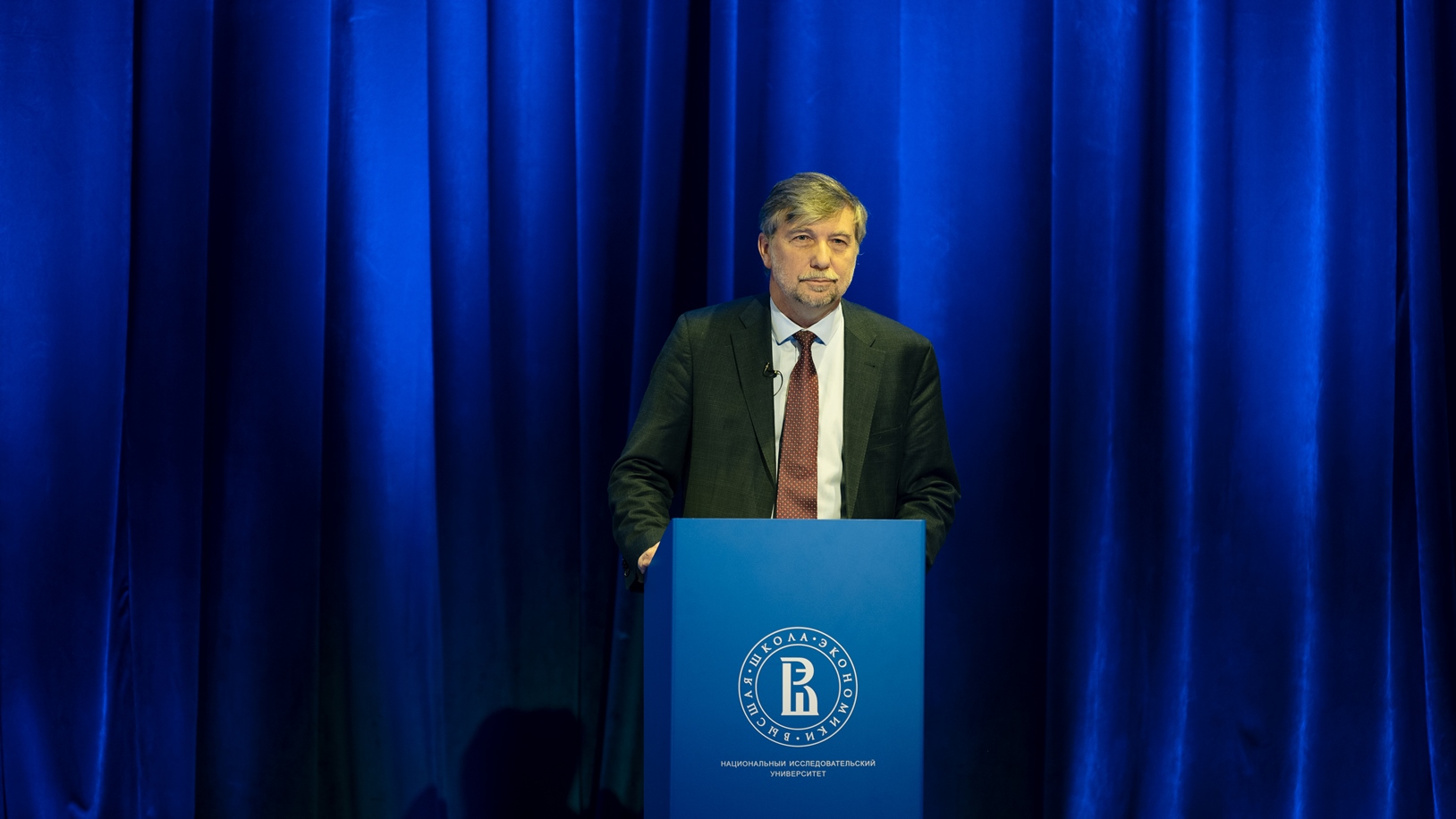HSE Master’s Programmes Open House Day Features New Programmes Taught Entirely Online

This year HSE University is admitting applicants to nine practice-oriented Master's programmes in sought-after specialities in IT, management, economics, and finance. On March 13 and 14, 2021 at HSE’s Open Day for Master’s programmes, academic supervisors and representatives of partner companies described the features of these programmes.
HSE University was one of the first Russian universities to promote online learning opportunities, said Sergey Roshchin, HSE University Vice Rector, speaking at the Open House Day. The University offers not only individual online courses (offered mainly on Coursera and the National Platform for Open Education), but also specialisations, as well as academic programmes delivered entirely online. The high demand for HSE University’s online products was confirmed last year during the pandemic.

Russia's first English-taught Master's programme to be implemented entirely online on Coursera is HSE University’s ‘Master of Data Science’ programme. The programme welcomed its first cohort one year ago. It trains specialists in modern data analysis (data scientists), machine learning engineers, and future researchers in data science. The programme is taught in English. The next admissions campaign for the programme will be held this summer.
This year, HSE University will increase its offerings of online Master's programmes significantly. Four English-taught Master's programmes will be enrolling students for the first time in 2021: ‘Master of Data and Network Analytics’, ‘Master of Computer Vision’, ‘Master of Finance’ and ‘Master of Business Analytics’. To watch a video and read answers to common admissions questions, click here. This also includes a presentation of the ‘Master of Data Science’ programme.
All online Master’s programmes are presented in the University's programme catalogue. By visiting the website for each programme, you can learn more about programme curricula, faculty members, entry requirements, tuition fees, and so on. You can also submit questions using the feedback form.
In addition to the English-taught programmes, four Russian-taught Master's programmes will begin enrolment in 2021: ‘Marketing Management’, ‘Digital Product Management’, ‘Economic Analysis’ and ‘Machine Learning and Data-Intensive Systems’.
As Vice Rector Sergey Roshchin stressed, online programmes are an innovation for Russian education system. Applicants should understand that a Master's programme implemented online is a full-time degree programme, and its graduates receive the same diploma as those who graduate from traditional on-campus Master's programmes. The educational content includes different elements, both synchronous and asynchronous. Students not only attend online courses and work with other educational resources, but also, above all, engage in dialogue with professors and get involved in project activities and university life.
HSE University graduates are in demand on the labour market, and it does not matter for employers whether they studied offline or online, especially since it is not specified on the diploma, Sergey Roshchin pointed out. According to a recent survey, the average monthly salary of a graduate of the Faculty of Computer Science is 148,900 roubles, for the graduates of the Faculty of Business and Management (now Graduate School of Business) it is 101,700 roubles, and for Faculty of Economic Sciences alums it is 100,400 roubles.
The advantages of online learning are that students do not need to spend time travelling, including across national borders: they can be located anywhere in the world, combine work and study, and forge their own educational path. These opportunities are not always available when studying on campus. None of the components of the University's Master's programmes involve a full-time stay at the University, but if a student happens to be near an HSE University campus—be it Moscow, St. Petersburg, Nizhny Novgorod, or Perm—and wants to visit their alma mater, they are certainly welcome.
See also:
HSE Open House: Where Physicists Study
Students in the Faculty of Physics, one of the newest departments at HSE, will find a homey atmosphere, understanding teachers, and the opportunity to engage in science from the first year of studies. Physics students Arslan Galiullin (2nd year) and Sofia Lopatina (1st year) will be our guides for this instalment of the Open House project.
HSE School of Psychology Moves to Centre of Moscow
The School of Psychology has moved to Armyansky Pereulok, which was a long-awaited event for HSE psychology students. The school was previously located at one of the university’s more remote campuses on Volgogradsky Prospekt. The HSE Centre for Cognition & Decision Making also made an important move recently, this time into the university’s building on Krivokolenny Pereulok. Below we show and discuss where and how HSE students will be learning starting this September.
Where Mathematicians Are Made
This summer, the HSE Faculty of Mathematics moved into a new building on Usacheva Street. As part of the Open House project, two HSE students – Petr Ogarok, a second-year student in the Mathematics programme, and Anastasia Matveeva, a first-year master’s student in the Mathematics and Mathematical Physics programme – gave an excursion around the new building.
Where Teachers, Principals, and Education Researchers Learn
Portrait galleries of renowned scientists, research laboratories right next to large classrooms and auditoriums, educational programmes for students and principals – these are just a few of the things discussed during an excursion around the HSE Institute of Education as part of the Open House project. Victoria Malova, a second-year student in the Evidence-Based Education Policy master’s programme, and Denis Federiakin, a second-year student in the Measurement in Psychology and Education master’s programme, served as the tour guides for the day.
Where Journalism, PR, and Advertising Experts Are Made
Student-run television studios, artwork, effective advertising examples, and walls with headlines from Kommersant – these are just a few of the things discussed during an Open House excursion around the buildings where students specialising in media and communications study.


